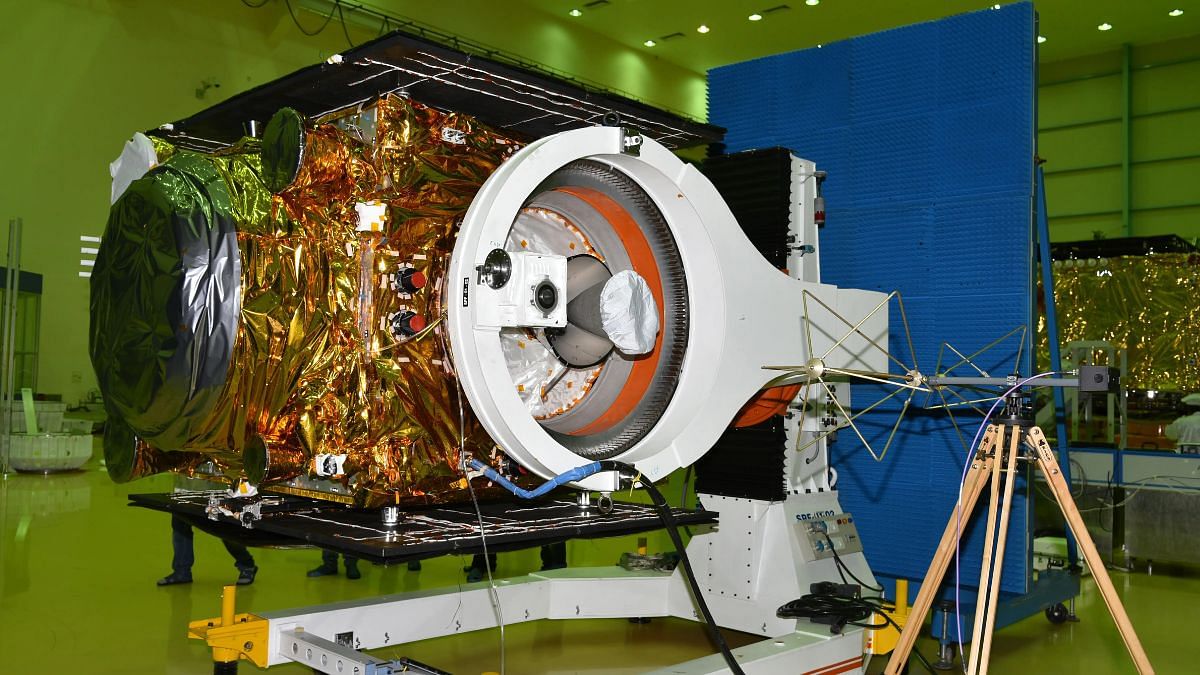
Soon, ISRO’s rubidium atomic clock will determine time on your smartphone & laptop. What it is
Bengaluru: Joining a club of four other countries, India is all set to sync Indian computers with the domestically developed ‘Rubidium atomic clock’ launched last year in a 2G navigation satellite, without any change to time. Currently, Indian systems on the internet sync to the US-based Network Time Protocol, which syncs time across computer networks.
This clock was developed by the Indian Space Research Organisation (ISRO) to be used with the Indian Regional Navigation Satellite System (IRNSS), or NavIC, which was built after the American government refused GPS access to India during the Kargil War.
The first nine satellites launched between 2013 and 2023 as a part of NavIC carry imported Rubidium clocks. The indigenously produced one was launched last year on the tenth and latest navigation satellite in May.
ThePrint explains what atomic clocks are and why India needs its own.
What are atomic clocks
Atomic clocks are the most precise clocks made that are true to a billionth of a second. They measure time by tracking the resonant frequency of atoms used in the clock.
Atoms and electrons in them carry varying energy levels. When an electron gets excited, or gets more energy, it transitions to a different orbit. In the atomic clocks, this is done by using a certain frequency of electromagnetic radiation which the electron absorbs, thus oscillating the atom. By fine tuning the microwave radiation frequency that can transition multiple atoms to various states, the energy oscillation can be calculated to extremely high accuracy.
An atomic clock made with a caesium atom was the standard measuring unit used to define a second under the universally-used International System of Units (also called SI). This definition of a second is also used in the International Atomic Time (TAI) standard, which a number of synced atomic clocks globally maintain. It is also the basis for the GMT or UTC time systems, which factor in leap seconds and fractions of a second change caused by earth’s rotation.
Why navigational satellites need atomic clocks
Navigational satellites also use atomic clocks because of the precision required to calculate distances, which can carry magnified errors of distance on the ground from a tiny error of a billionth of a second with a clock in a satellite. The time difference between different satellites at different orbits and different locations are used to triangulate a location on earth.
These satellites also carry quartz crystal clocks, which are accurate for human time telling but do not possess the precision of atomic clocks.
The most popular and widely used atomic clocks use caesium atoms that are supercooled. ISRO’s indigenous atomic clocks, though, use a rubidium atom.
Previously, ISRO’s satellites used imported atomic clocks from European manufacturer Astrium. The first seven satellites that were launched as a part of NavIC carried three imported rubidium clocks each. It was reported back in 2018 that nine of the 21 atomic clocks showed errors, leading ISRO to plan for four backup satellites.
Atomic clocks on these satellites are not foolproof, and are prone to failure due to various reasons.
How NavIC will be used
NavIC, the alternative to American-owned GPS, was approved by the government over 15 years ago at a cost of Rs 1,420 crore. It will cover the Indian subcontinent landmass and the waters for 1,500 km beyond the Indian coast.
It is already operational, and requires new hardware in phones to be compatible. The receiver, transmitter, and chipset are accessible in some new mobile phones but, for now, GPS remains the default used by the Indian public.
(Edited by Zinnia Ray Chaudhuri)
News Related-
Anurag Kashyap unveils teaser of ‘Kastoori’
-
Shehar Lakhot: Meet The Intriguing Characters Of The Upcoming Noir Crime Drama
-
Watch: 'My name is VVS Laxman...': When Ishan Kishan gave wrong answers to right questions
-
Tennis-Sabalenka, Rybakina to open new season in Brisbane
-
Sikandar Raza Makes History For Zimbabwe With Hattrick A Day After Punjab Kings Retain Him- WATCH
-
Delayed Barapullah work yet to begin despite land transfer
-
Army called in to help in tunnel rescue operation
-
FIR against Redbird aviation school for non-cooperation, obstructing DGCA officials in probe
-
IPL 2024 Auction: Why Gujarat Titans allowed Hardik Pandya to join Mumbai Indians? GT explain
-
From puff sleeves to sustainable designs: Top 5 bridal fashion trends redefining elegance and style for brides-to-be
-
The Judge behind China's financial reckoning
-
Arshdeep Singh & Axar Patel Out, Avesh Khan & Washington Sundar IN? India's Likely Playing XI For 3rd T20I
-
Horoscope Today, November 28, 2023: Check here Astrological prediction for all zodiac signs
-
'Gurdwaras are...': US Sikh body on Indian envoy's heckling by Khalistani backers
